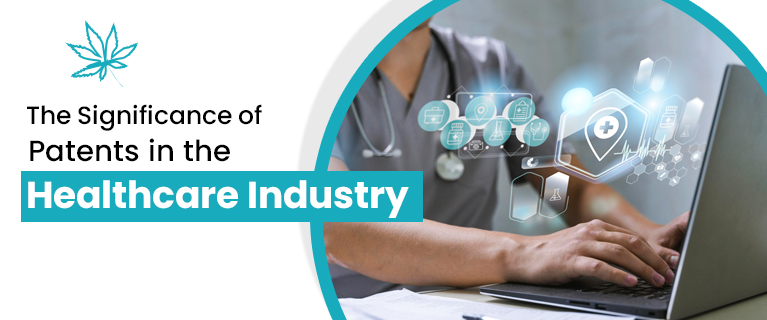The Significance of Patents in the Healthcare Industry
Innovation is at the heart of the healthcare industry, with continuous advancements paving the way for improved diagnostics, treatments, and patient care. Patents play a pivotal role in fostering innovation by protecting and incentivizing the development of new technologies, pharmaceuticals, medical devices, and healthcare processes. In this blog, we will explore the significance of patents Registration in the healthcare industry , their impact on innovation, and how they contribute to improving patient care.
1. Encouraging Research and Development:
Patents in the healthcare industry provide a crucial incentive for healthcare companies and researchers to invest in extensive research and development efforts. The promise of exclusivity and the potential for commercial success motivates inventors to explore new frontiers in healthcare. The patent system rewards inventors by granting them exclusive rights to their inventions for a limited period, allowing them to recoup their investments and stimulate further innovation.
Read also this -: Why is Patent Registration Essential for Safeguarding Your Inventions2. Protection of Intellectual Property:
Patents serve as a means of protecting intellectual property in the healthcare industry. They provide legal protection against unauthorised use, reproduction, or commercialization of innovative healthcare technologies. This protection encourages inventors to disclose their inventions to the public, fostering knowledge sharing, collaboration, and the progression of medical science.
3. Advancement of Medical Treatments:
Patents in the healthcare industry drive the development of novel medical treatments and therapies. They enable pharmaceutical companies to invest in extensive clinical trials and regulatory processes necessary for drug approval. Patented medicines often represent significant advancements over existing treatments, offering enhanced efficacy, reduced side effects, or improved patient outcomes. Patents provide a mechanism for pharmaceutical companies to recover their investment and incentivize the development of life-saving drugs.
4. Innovation in Medical Devices:
Patents also play a crucial role in fostering innovation in medical devices. From advanced imaging technologies to wearable health trackers, patents protect the unique designs, functionalities, and methods of manufacturing medical devices. These patents encourage companies to invest in research and development, resulting in the creation of cutting-edge devices that improve diagnostic accuracy, enhance patient monitoring, and enable minimally invasive procedures.
5. Support for Startups and Entrepreneurs:
Patents provide startups and entrepreneurs in the healthcare industry with a competitive edge. By protecting their innovative ideas and technologies, patents create a barrier to entry for potential competitors. This protection enhances the value of the startup's intellectual property, making it an attractive investment opportunity and facilitating collaborations with larger healthcare companies. Patents help startups secure funding, attract strategic partnerships, and drive commercialization of their innovations.
6. Collaboration and Licensing Opportunities:
Patents promote collaboration and licensing opportunities within the healthcare industry. Companies and research institutions can licence their patented technologies to other entities, enabling them to leverage the innovation for further development or commercialization. Cross-licensing agreements allow organisations to pool their intellectual property resources, encouraging collaboration, knowledge exchange, and the creation of more comprehensive healthcare solutions.
7. Economic Growth and Job Creation:
The healthcare industry is a significant contributor to economic growth and job creation. Patents in healthcare drive innovation, leading to the establishment of new companies, expansion of existing ones, and the creation of high-skilled jobs. Patented innovations generate revenue streams, attract investments, and stimulate economic activity in related sectors such as manufacturing, distribution, and healthcare services.
8. Improved Patient Care:
Ultimately, patents in the healthcare industry translate into improved patient care. By protecting and encouraging innovation, patents drive the development of safer, more effective, and affordable healthcare solutions. Patented inventions enable early disease detection, personalised medicine, minimally invasive procedures, and advanced treatment options. Patients benefit from faster diagnoses, better treatment outcomes, reduced hospital stays, and improved quality of life.
Read also this -: A Guide to Applying for a Patent in IndiaConclusion
patents play a vital role in the healthcare industry by fostering innovation, protecting intellectual property, and driving advancements in medical treatments and devices. They incentivize research and development, support startups, facilitate collaborations, and contribute to economic growth and job creation. Patents in healthcare ultimately lead to improved patient care, providing access to innovative therapies, diagnostic tools, and technologies. By recognizing and protecting the value of intellectual property, the patent system plays a crucial role in shaping the future of healthcare and advancing the well-being of individuals around the world.




Comments
Post a Comment